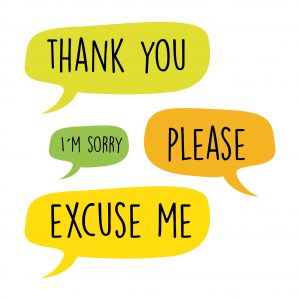Saurabh Tankha
The first time I got a requisition for a workshop on social etiquette from a school, I was a little surprised. In fact, shocked. Do I really have to “teach” social etiquette? I mean don’t we learn them naturally from our parents, teachers and elders. I learnt them all by just watching my elders. Do kids really need a workshop for teaching social etiquette? “Yes, sir. We really need such workshops. Children don’t listen to us. I’m sure if you will talk about it, they will try to understand,” said school coordinator Rohitash Kumar. Surely, there is something drastically wrong with us – the parents, I thought to myself.
Thereafter, I started watching – observing – children around me – in marketplaces, in malls, in the Metro, colony parks and social gatherings. And the fact why teachers wanted a workshop on social etiquette became crystal clear. A majority of children and adolescents these days sorely lack these social skills. In fact, they are living in such sterilised silos that they are oblivious to the existence of others around them. Young adults are better but only by a slight margin.

Children these days lack the concept of saying thank you, sorry, excuse me, pardon me – words that are essential for building a cordial relationship. At a workshop for middle-class students sometime back when I spoke about the importance of saying thank you and sorry as and when required, a class VIII girl was quick to interrupt and point that these words are NOT required among friends and “with friends, there is no need to say sorry or thank you”. And I was immediately reminded of the dialogue of Salman Khan-starrer Maine Pyar Kiya. Such profound is the impact of films on children that they ignore educators and blindly follow what their “heroes and heroines” say on screen.
The other day while deboarding from Metro, a young boy almost crashed into me in a hurry to get into it. He was so immersed into a conversation on his mobile phone that he was unaware where his feet were taking him. As I uttered hey, he just looked up nonchalantly at me and moved a step away. I expected a sorry but let alone saying it, he didn’t even look sheepish that he almost banged into me. He just shrugged his shoulders! Another time, I was at a hotel and about to open the washroom door when a boy just sped past me. I could understand his emergency but how much time does it take to say excuse me?
These are just some of the instances that I witnessed and these just don’t happen with me. They must be happening with you, to you.
No wonder, when one day I gave way to a collegiate entering the lift with me, he looked at me surprisingly. But then a smile appeared on his face. He had liked the gesture. I’m sure, he would remember this the next time he encounters such a situation and he will give way to others.
I hope he does!